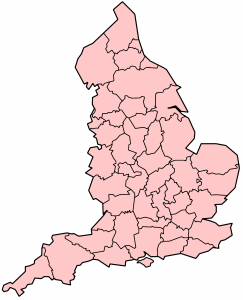One role I am keen for the Department of Health to play is to help organisations understand their performance better and consider what action they might want to take. When it comes to local authorities there is merit in using data to hold a mirror up to the sector and invite reflection. The newly launched Adult Social Care Efficiency Tool is designed to help local authorities raise quality and value for money in two critical areas of service provision: older adults and working age adults with learning disabilities.
The tool will encourage councils to compare themselves with other statistical neighbours to see how well they perform. A ‘statistical neighbour’ is data speak for those councils closest in terms of demography, need and cost of services.

For each local authority, the new tool identifies their statistical neighbours and offers the possibility for a council to see its expenditure, activity levels and outcomes.
It may be that two councils spend similar amounts on particular services and yet quality outcomes are very different. The efficiency tool will encourage councils to share their knowledge to help improve their outcomes or perhaps reduce high costs through the adoption of processes and techniques already proven elsewhere.
It’s important to stress the tool is for use by councils to assess their own performance and to identify where different approaches in comparable local authorities may yield lessons. This is not about who is best or worst – this is about comparing local data with those councils who probably face very similar challenges, and by doing this gain new insights.
I believe this is a positive basis for encouraging local authority colleagues – particularly those involved in commissioning services – to take a fresh and focused look at the relationship between expenditure and outcomes.
So what kind of comparison data will councils be able to review? Comparable indicators include:
- adult social care expenditure per head
- quality of services (as suggested by Adult Social Care Outcomes Framework indicators)
- care packages provided for older adults and working age adults with learning disabilities.
Hopefully, by examining the data it will provide a catalyst for meaningful discussions between authorities. It’s an opportunity to consider their particular social care landscapes and the local factors influencing outcomes when compared to higher or lower levels of expenditure across other regions. It is also an opportunity to reflect on choices made and those that will need to be made.
The methodology behind the development of the tool is proven - already established by the Audit Commission and reviewed by the London School of Economics.
The adult social care comparison group data is now available on LG Inform* and the tool itself is online as a standalone excel document on GOV.UK. As its use becomes – I hope – part of day to day business, further functionality will be added including, I understand, bespoke reports to help make even better use of comparable council data.
Saving money, boosting efficiency and raising quality need not be mutually exclusive terms. Challenging yes – but I believe this tool is a useful advancement in making best use of limited resources. I hope many people use it to better understand their own council’s ways of working and open the channels to positive and creative discussions with peers within and between councils.
